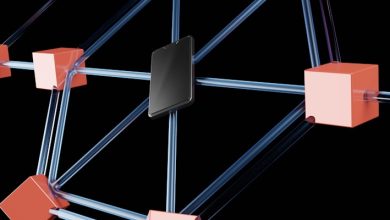The Role of Blockchain in Decentralized Autonomous Vehicles

- Understanding the concept of Decentralized Autonomous Vehicles
- Exploring the potential of blockchain technology in the automotive industry
- How blockchain ensures transparency and security in autonomous vehicle operations
- Challenges and opportunities of integrating blockchain in decentralized autonomous vehicles
- The role of smart contracts in enhancing efficiency and trust in autonomous vehicle systems
- Regulatory considerations for blockchain-powered decentralized autonomous vehicles
Understanding the concept of Decentralized Autonomous Vehicles
Decentralized Autonomous Vehicles (DAVs) are a revolutionary concept in the transportation industry that leverages blockchain technology to create a network of self-driving vehicles that can operate without human intervention. These vehicles are equipped with sensors and artificial intelligence algorithms that allow them to navigate roads, avoid obstacles, and make decisions in real-time.
One of the key advantages of DAVs is their ability to communicate with each other and coordinate their actions. This enables them to work together to optimize traffic flow, reduce congestion, and improve overall efficiency. By decentralizing decision-making processes, DAVs can operate more autonomously and adapt to changing conditions on the road.
Blockchain technology plays a crucial role in enabling DAVs to operate in a decentralized manner. By using a distributed ledger to record transactions and data, blockchain ensures that information is secure, transparent, and tamper-proof. This allows DAVs to trust the data they receive from other vehicles and infrastructure, making it easier for them to collaborate and make informed decisions.
Exploring the potential of blockchain technology in the automotive industry
Blockchain technology has the potential to revolutionize the automotive industry by providing a secure and decentralized platform for various applications. One of the key benefits of blockchain in this sector is its ability to enhance data security and privacy, which are crucial for autonomous vehicles to operate efficiently and safely.
By utilizing blockchain, automotive companies can securely store and share data related to vehicle performance, maintenance records, and even driver behavior. This can help in improving the overall performance of autonomous vehicles and ensuring compliance with regulations.
Moreover, blockchain can enable peer-to-peer transactions between autonomous vehicles, allowing them to communicate and make decisions in real-time without the need for a central authority. This can lead to increased efficiency in traffic management and reduced congestion on roads.
Additionally, blockchain technology can facilitate the development of smart contracts that automatically execute agreements between different parties, such as vehicle owners, manufacturers, and service providers. This can streamline processes and reduce the risk of fraud or errors in transactions.
In conclusion, the potential of blockchain technology in the automotive industry is vast, offering numerous opportunities for innovation and growth. By leveraging the benefits of blockchain, the sector can move towards a more decentralized and autonomous future, where vehicles can communicate, transact, and operate seamlessly without human intervention.
How blockchain ensures transparency and security in autonomous vehicle operations
Blockchain technology plays a crucial role in ensuring transparency and security in the operations of decentralized autonomous vehicles. By utilizing blockchain, the data generated by autonomous vehicles can be securely stored in a decentralized and tamper-proof manner.
One of the key benefits of using blockchain in autonomous vehicle operations is the high level of transparency it provides. All transactions and data recorded on the blockchain are immutable, meaning they cannot be altered or deleted. This transparency ensures that all stakeholders have access to accurate and trustworthy information about the vehicle’s performance, location, and status.
Furthermore, blockchain technology enhances security in autonomous vehicle operations by encrypting data and securing it with cryptographic algorithms. This protects sensitive information from being accessed or manipulated by unauthorized parties, reducing the risk of cyberattacks and data breaches.
In addition, blockchain enables the implementation of smart contracts, which are self-executing contracts with the terms of the agreement directly written into the code. Smart contracts can automate various processes in autonomous vehicle operations, such as payments, maintenance scheduling, and insurance claims, further enhancing efficiency and security.
Challenges and opportunities of integrating blockchain in decentralized autonomous vehicles
One of the key challenges in integrating blockchain technology into decentralized autonomous vehicles is the issue of scalability. As the number of transactions on the blockchain increases, so does the strain on the network. This can lead to delays in transaction processing and higher fees for users.
Another challenge is the need for interoperability between different blockchain platforms. Decentralized autonomous vehicles may need to communicate and transact with various parties using different blockchains. Ensuring seamless integration between these platforms is crucial for the success of blockchain in this context.
On the other hand, there are several opportunities that blockchain technology presents for decentralized autonomous vehicles. One of the main advantages is increased transparency and security. By using a distributed ledger, all transactions and data recorded on the blockchain are immutable and transparent, reducing the risk of fraud or tampering.
Moreover, blockchain can enable new business models for decentralized autonomous vehicles, such as peer-to-peer transactions and autonomous payments. This could revolutionize the way transportation services are accessed and utilized, leading to more efficient and cost-effective solutions for users.
Overall, the integration of blockchain in decentralized autonomous vehicles brings both challenges and opportunities. By addressing scalability issues and promoting interoperability, while leveraging the transparency and security benefits of blockchain technology, the potential for innovation in the transportation industry is vast.
The role of smart contracts in enhancing efficiency and trust in autonomous vehicle systems
The integration of smart contracts plays a crucial role in enhancing efficiency and trust within autonomous vehicle systems. Smart contracts, which are self-executing contracts with the terms of the agreement directly written into code, provide a secure and transparent way to facilitate transactions and enforce agreements.
By utilizing blockchain technology, smart contracts can automate various processes within decentralized autonomous vehicles, such as payments for services, data verification, and maintenance scheduling. This automation not only reduces the need for third-party intermediaries but also minimizes the potential for human error and fraud.
Moreover, smart contracts help establish trust among different parties involved in the operation of autonomous vehicles. Through the use of cryptographic algorithms, smart contracts ensure that all transactions are secure and tamper-proof, thereby enhancing the overall integrity of the system.
Regulatory considerations for blockchain-powered decentralized autonomous vehicles
Regulatory considerations for blockchain-powered decentralized autonomous vehicles are crucial to ensure the safe and efficient operation of these innovative technologies. As autonomous vehicles become more prevalent on our roads, regulatory bodies must adapt to address the unique challenges and opportunities presented by blockchain technology. One key consideration is data privacy and security, as blockchain technology relies on transparent and immutable data storage. This raises questions about who has access to the data collected by autonomous vehicles and how it is used.
Another important regulatory consideration is liability and accountability. In the event of an accident involving a blockchain-powered decentralized autonomous vehicle, it may be challenging to determine who is at fault and liable for damages. Clear regulations must be put in place to define the responsibilities of manufacturers, operators, and other stakeholders in the autonomous vehicle ecosystem.
Additionally, regulatory bodies must consider the interoperability of blockchain systems used in autonomous vehicles. Standardization of blockchain protocols and smart contracts is essential to ensure seamless communication and data sharing between different vehicles and infrastructure. Without clear regulations on interoperability, the potential benefits of blockchain technology in autonomous vehicles may be limited.
Overall, regulatory considerations for blockchain-powered decentralized autonomous vehicles are complex and multifaceted. As these technologies continue to evolve, regulatory bodies must collaborate with industry stakeholders to develop comprehensive and flexible frameworks that promote innovation while safeguarding public safety and privacy.



